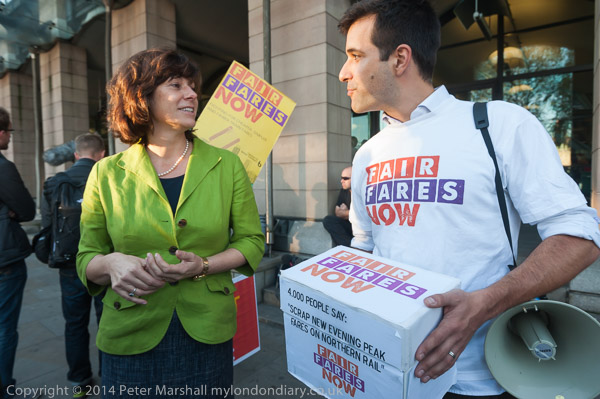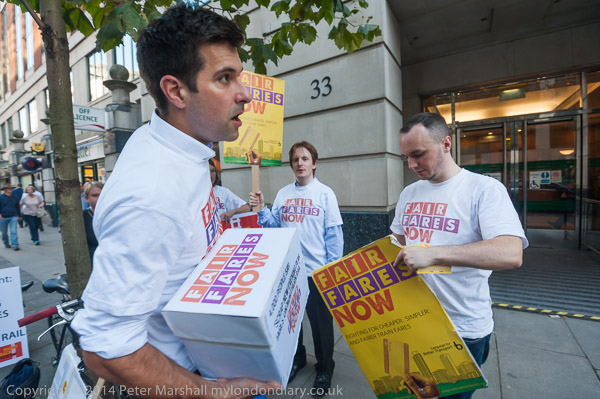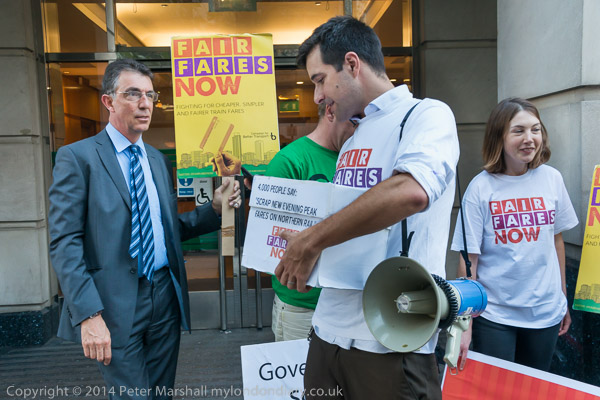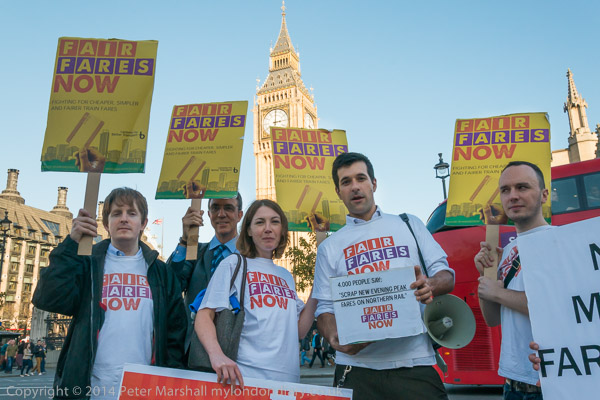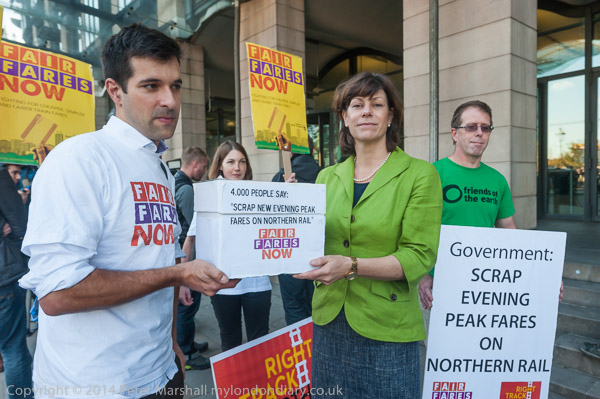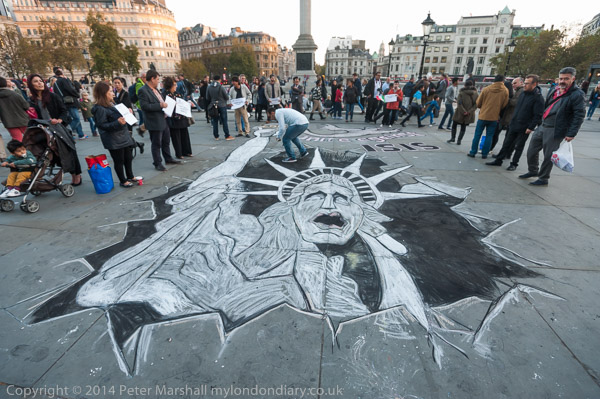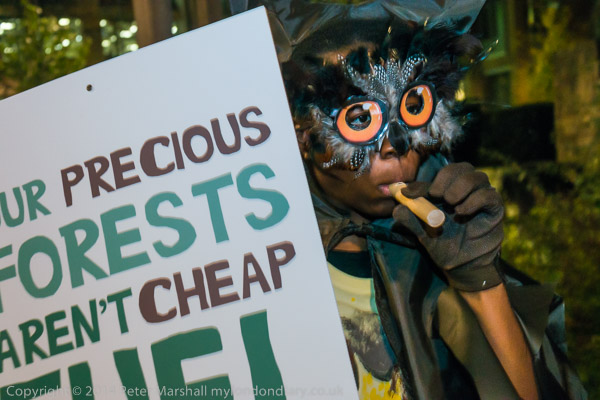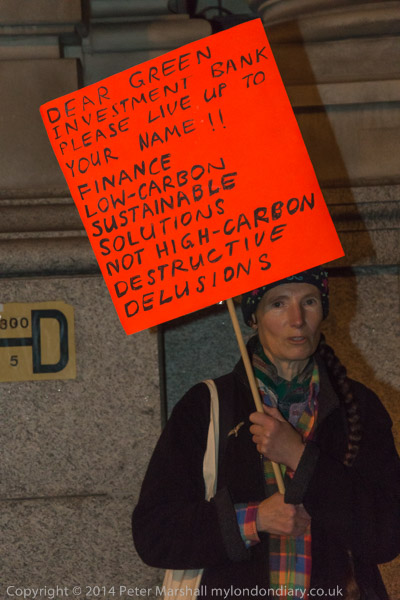Some of my thoughts about the UK railway system and my experiences of it with pictures from a protest on Thursday 20th July 2017 about the real problems faced by disabled rail users.
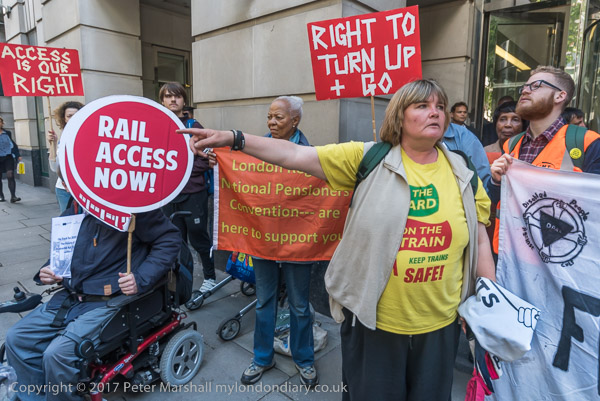
I’ve spent quite a lot of my life on trains. Not many very long journeys, though I did once go to Marseilles from Victoria long before the age of Eurostar and TGVs and I’ve always taken the train on my visits to Paris, Brussels and Scotland as well as most trips around England as I don’t drive. But the great bulk of my rail journeys have shorter commutes to photograph in and around London.
It was really the advent of the Travelcard in 1983 and its later extensions that made much of my photography of London practicable. Before that going Waterloo (or Vauxhall) had been easy for me, but getting around in London was a nightmare of buying tickets for individual journeys on trains, underground and buses. Well paid photographers could use taxis, but I was making little for most of the time and used them only rarely – mainly when others were paying or we could share.
The Travelcard also significantly reduced the costs of journeys involving several forms or transport or even several buses, and for those of us coming from outside London gave us freedom to travel within all six zones of Greater London. So news that it is to be ended for those living outside the boundary is not at all welcome.
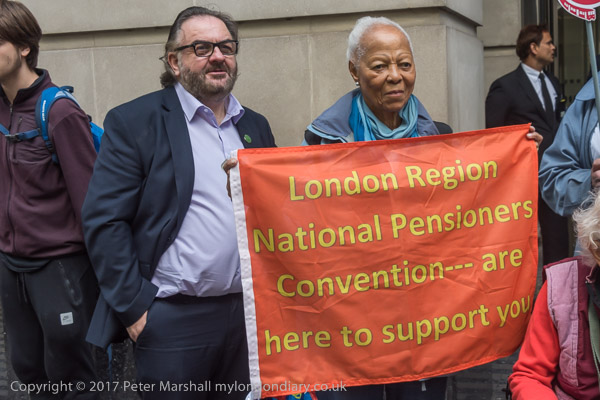
More recently, engineering works at weekends and rail strikes have also affected my photography. There have been days when I’ve decided not to try to get into London as the though of perhaps an extra couple of hours or even more sitting on trains and buses have just made it not seem worthwhile.
Of course I support the rail workers. The government’s approach to the disputes, forcing the various rail companies into confrontation rather than trying to find solutions is totally ridiculous and unsupportable. At the root of the problem is the fragmentation of privatisation and the opportunities it gave and continues to give the companies – many owned by foreign state railways – opportunities to profit at the expense of the tax payer. Radical reforms are needed, almost certainly involving some bringing back of rail into public ownership and undoing at least some elements of splitting up the essentially indivisible.
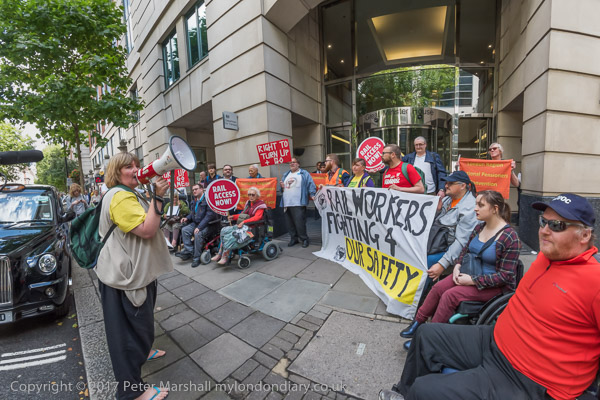
And engineering work is essential, though I do wonder why it seems to happen now far more frequently than it used to. It does seem to be handled more efficiently in some continental countries and involve less disruption of weekend services.
The government and rail companies are now proposing to get rid of most of the rail ticket offices. We have a hugely complex ticketing system with many anomalies and which ticket machines and online ticketing are unable to process. Even the workers in ticket offices can’t always get things right. But before cutting back on their services which many – particularly the old, disabled and less frequent travellers – find essential, we need first to unify and simplify rail ticketing.
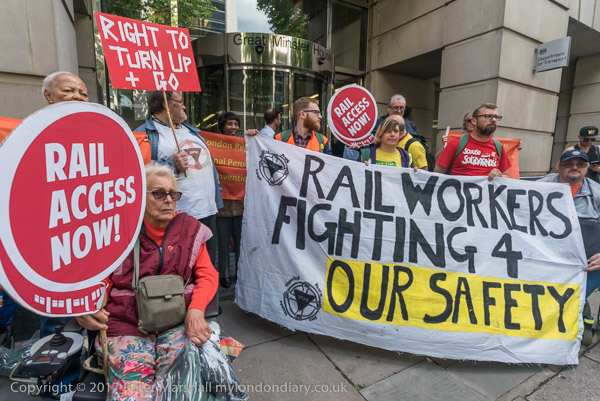
We have seen some improvements of our rail system since I first began using it back in the 1960s. There have been considerable improvements in rolling stock, begun under British Rail as did our faster services and Inter City lines, some electrified at that from London to Manchester. Design improvements have also changed our commuter trains (though in some areas these are still sadly out of date) making my journeys into London much less noisy and smoother.
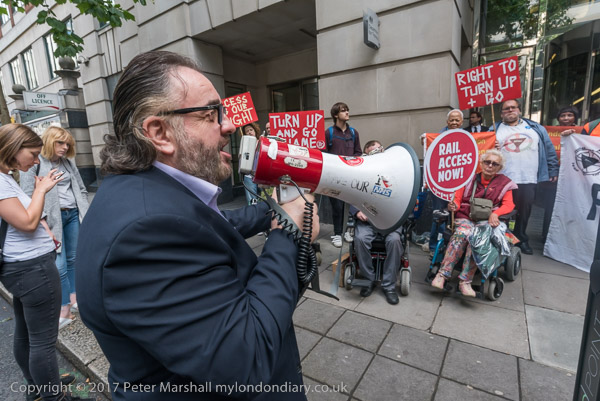
I do miss not being able to open windows and doors, but can see the reasons for this. But though we no longer have to wait at stations while the guard or station staff rush along the platform to close doors thoughtlessly left open by exiting passengers making the stops at stations a minute or so shorter, and though the newer trains have better acceleration and faster maximum speeds and are running on smoother rails, travel times have actually increased.
The reason for the slacker timetables is clear. Train companies have to pay for trains that run late. So they add a minute here and a minute there to the schedules. They also close train doors before the time the train is due to leave, sometimes 30s, sometimes a minute. So my 9.59 train is now a 9.58:30 train, often leaving passengers who should have just caught it fuming on the platform. And instead of the journey taking 28 minutes it now takes 34 – or even 38 at weekends.
DPAC/RMT ‘Right to Ride’ protest – Dept of Transport
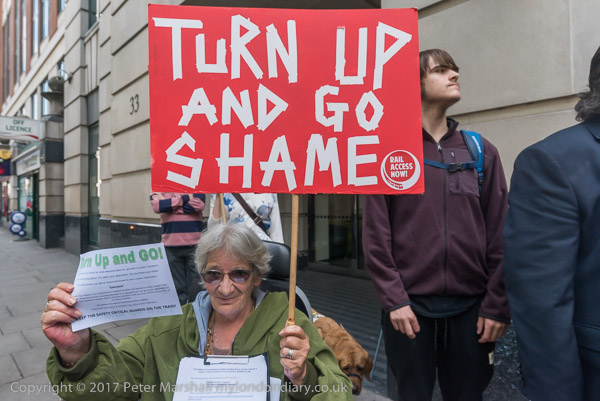
But my problems and moans about trains are trivial compared to those faced by those in wheelchairs or otherwise requiring support. On Thursday 20th July 2017 I was with DPAC (Disabled People Against Cuts) and RMT members outside the Dept of Transport, calling for disabled people to have the same right to use rail services as others.
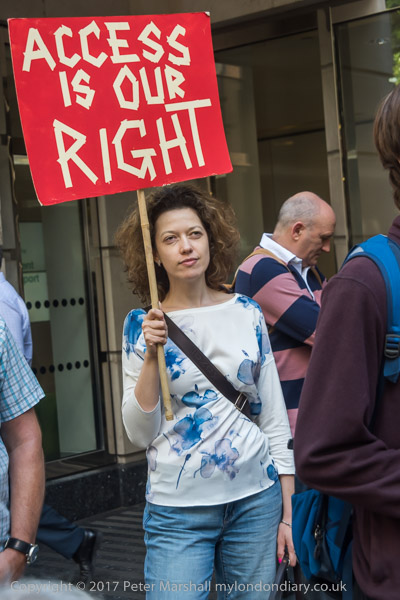
DPAC (Disabled People Against Cuts) had called this protest during their week of action while the London World Para Athletics Championships was taking place. DPAC say the government uses this and similar events to try to show it is highly supportive of the disabled while actually they are highly discriminatory against all those who are not high-performing para-athletes.
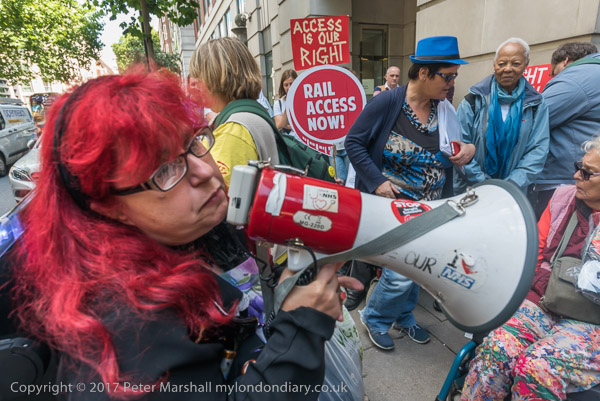
Many of the changes which the government is trying to impose on our railways, including Driver Only Operated trains, the removal of guards from trains and rail staff from stations all threaten the freedom of disable people to travel. DPAC have joined with RMT staff on picket lines for industrial action against these changes which discriminate against the disabled and threaten rail safety.
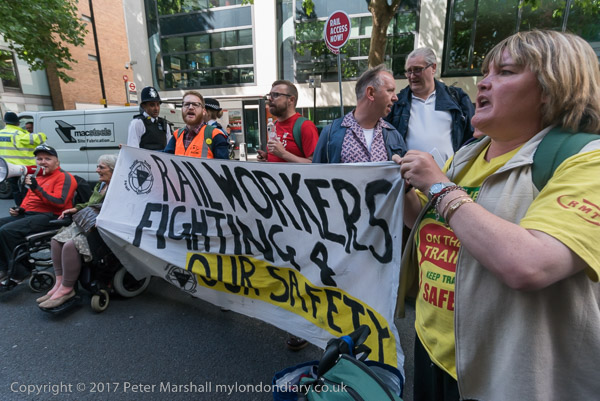
Disabled people requiring support to travel – such as a ramp to board a train – have to give a day’s notice, and even then are sometimes stranded when staff fail to turn up – often being left on the platform or taken to the next station. London buses now have driver-operated ramps, but no trains have these fitted.
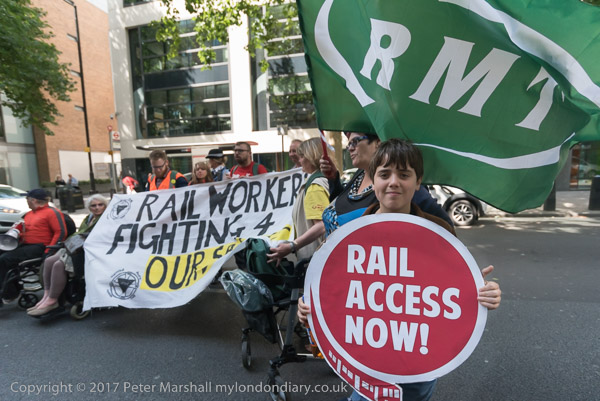
After speeches and delivering a petition demanding the right to ride on trains without having to give a day’s notice they blocked the road outside the ministry in protest for ten minutes. DPAC are now protesting with rail workers against the proposed ticket office closures.
More pictures at DPAC/RMT ‘Right to Ride’ protest
